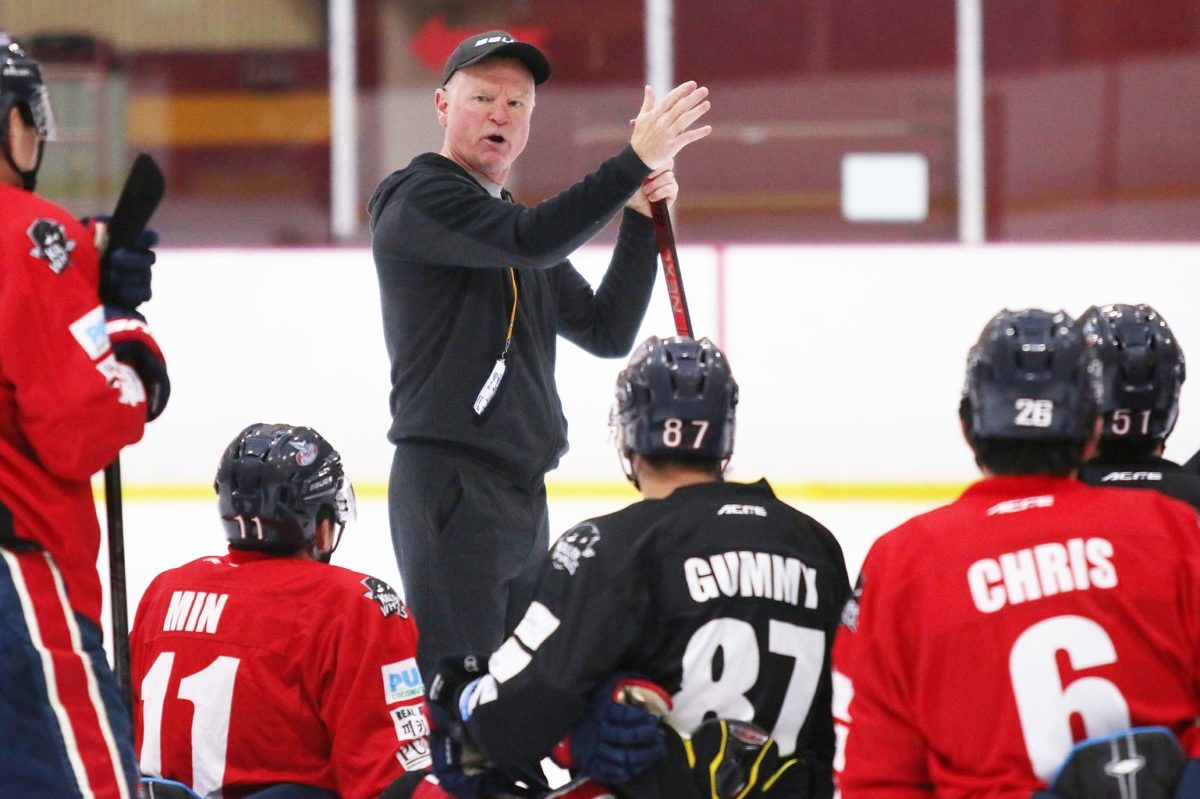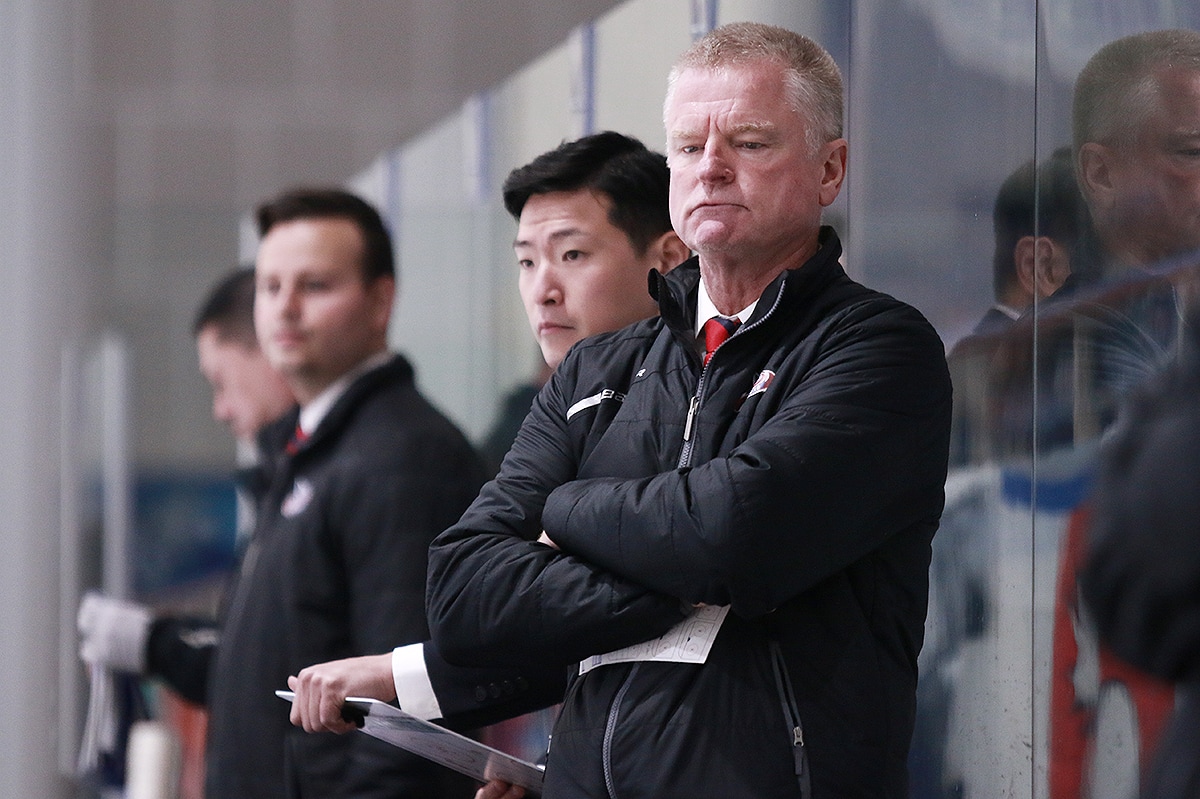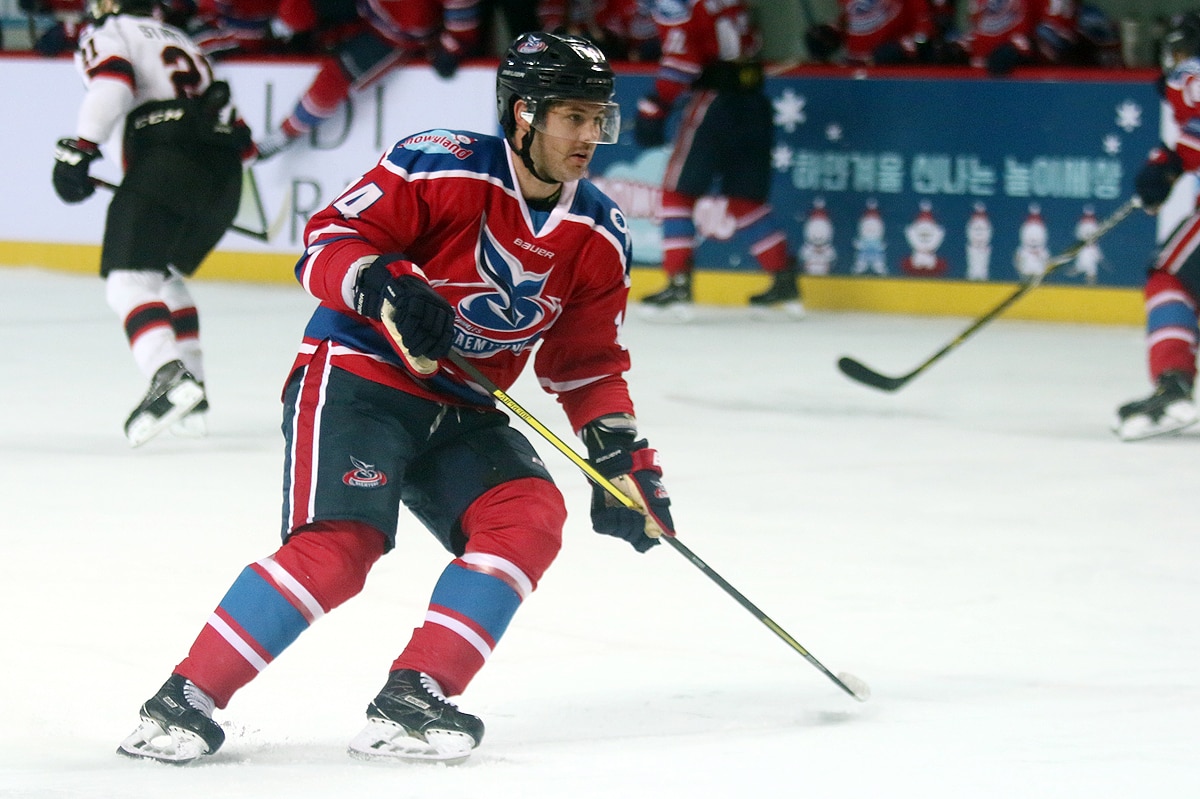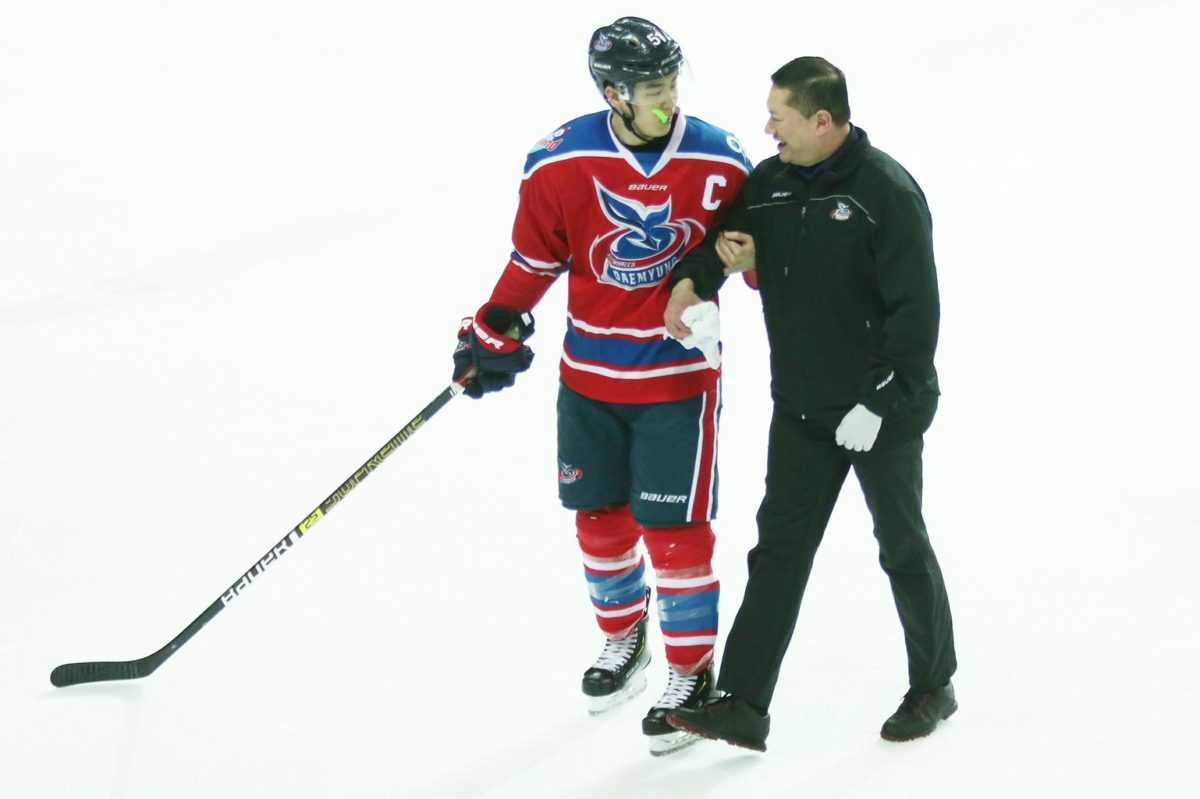
 Christian Thorsberg
The Hockey Writers
Christian Thorsberg
The Hockey Writers
36
Reads
0
Comments
Devils Alumni Pave Way for South Korean Hockey
When ex-New Jersey Devils general manager Lou Lamoriello helped Viacheslav “Slava” Fetisov defect from the Soviet Union in 1989 and make his New Jersey debut, Lamoriello also helped lift the Iron Curtain that had hung so prominently over the league for decades. Igor Larionov, Vladimir Krutov, and Sergei Makarov –– among others –– soon followed to the United States, and with 30 years’ hindsight, the 1989-90 season remains the genesis of what is now an influential Russian presence in the NHL, and leagues worldwide.
Decades later, the Devils organization is again helping to grow an international exchange, this time with the unlikely hockey haven of South Korea. Three Devils alumni –– coach Kevin Constantine, forward Michael Swift, and long-time athletic trainer Bill Murray –– have found success with the Asia League’s Daemyung Killer Whales, and hold leadership roles in Korean international hockey.

Playing out of Seoul, the Killer Whales are one of seven clubs in the Asia League, which also has three teams from Japan, and one from Russia. When PyeongChang was named the 2018 Winter Olympics host city, an effort to reinvigorate South Korea’s hockey presence saw an increased pool of talent from North America be recruited to or become interested in Asia League hockey.
Daemyung Killer Whales: Head Coach Kevin Constantine
Former Devils head coach Kevin Constantine was among the group that made the transcontinental journey, signing on with the Killer Whales before the 2017-18 season. He brought with him an extensive resume and became the first Asia League bench boss with NHL coaching experience.

When he replaced Larry Robinson at the Devils’ helm for 31 games during the 2001-02 regular season, he inherited a dynastic blue line and Cup-winning core, anchored in goal, of course, by Martin Brodeur. The team gave up the third-fewest goals in the league, and went 20-8-2-1 under his direction before succumbing in the first round of the playoffs to the Carolina Hurricanes. Despite his solid record, the Devils opted to bring in Pat Burns the following season, a move that proved to be as successful as it was bold.
Related: 3 Best Devils to Never Win a Stanley Cup
Now coaching in a league where the average player is three inches shorter and more than 25 pounds lighter than their NHL counterparts –– all while doing battle on spacious IIHF rink dimensions –– Constantine leads a team that plays with a style antithetical to his defensive Devils of old. Quickness, skill plays, and space-making offensive creativity take precedent over physicality and rigid defensive structure.
In his three seasons with Daemyung, Constantine has flipped the switch on a team that logged 37 regulation losses in 48 games in the campaign before his arrival. He’s earned a 41-38-7-12 cumulative record with the Killer Whales, two postseason berths, and a fierce yet friendly relationship with his squad: “His first impression was pretty scary, like a tiger,” player Kim Bum-Jin said in 2017, per the Korea JoongAng Daily. “But outside the rink, he’s chill and easygoing.” (from ‘Killer Whales’ newest coach is ‘like a tiger’,’ Korea JoongAng Daily, 06/29/2017)
The Asia League’s All-Time Leading Scorer
For nearly a decade, another Killer Whale and former Devil has been leading the on-ice charge for Korean hockey. Michael “Swifty” Swift spent three seasons playing for New Jersey’s AHL affiliate from 2008-11, racking up 111 points in 180 games with the Lowell and Albany Devils.

Since entering the Asia League in 2011 –– a 90-point debut campaign that earned him MVP honors –– Swift has notched 231 goals and 304 assists in 320 games, leading the league in points in five of his eight seasons. Most recently, Swift led the Killer Whales with 32 points in 34 games in 2018-19, earning Daemyung a first-place regular-season finish, and the young franchise’s inaugural playoff appearance. Earlier in the season, he became the Asia League’s all-time leading scorer.
Having consistently represented South Korea in World Championship play since his move, Swift’s big moment came in 2018 when he tallied an assist in Korea’s first Olympic hockey game against the Czech Republic. Despite this being their only goal of the tournament –– quickly dropping three games and exiting early –– Swift’s contributions have continued to give the emerging hockey nation momentum.
The Killer Whales’ Stanley Cup Champion
Perhaps the most unsung Devil-turned-Killer Whale is also the most tenured and decorated. Bill Murray, New Jersey’s head athletic trainer from 1996-2006 and two-time Stanley Cup champion, joined Daemyung before their 2016-17 season.

Serving as the Killer Whales’ head athletic trainer, he took on the additional role of Director of Sports Medicine within the last year –– a responsibility not unfamiliar to Murray. From 2011-2016 he was the KHL Medical Center Special Advisor, recruited by, in a full-circle twist of fate, Slava Fetisov, the former Russian Minister of Sport and KHL Board of Directors chairman. The two met in New Jersey when Fetisov was an assistant coach for the Devils.
Related: John MacLean – How He Became a Devils Legend
Behind the bench for both the Killer Whales and National Team play, Murray’s role as an experienced journeyman and hockey ambassador continues to pay dividends for the growth of Korean hockey. When another former Devil, Alexander Mogilny, reached out to Murray in 2018 about recruiting a potential player, it wasn’t long before the Killer Whales appended to their roster a player with additional NHL and KHL experience, signing forward Alexander Frolov.
As South Korea’s hockey presence continues to grow, so too does the unique influence of former Devils. While New Jersey’s team continues to sit on the sidelines during the NHL playoffs, Devils fans can find refuge in their South Korean surrogates –– after the Asia League playoffs were cancelled in February due to COVID-19 concerns, Daemyung hit the ice earlier this week, for the first time this summer. The league aims to begin its next season in January 2021.
The post Devils Alumni Pave Way for South Korean Hockey appeared first on The Hockey Writers.
Popular Articles

















































 Blackhawks Chicago
Blackhawks Chicago Panthers Florida
Panthers Florida Penguins Pittsburgh
Penguins Pittsburgh Rangers New York
Rangers New York Avalanche Colorado
Avalanche Colorado Kings Los Angeles
Kings Los Angeles Maple Leafs Toronto
Maple Leafs Toronto Bruins Boston
Bruins Boston Capitals Washington
Capitals Washington Flames Calgary
Flames Calgary Oilers Edmonton
Oilers Edmonton Golden Knights Vegas
Golden Knights Vegas Flyers Philadelphia
Flyers Philadelphia Senators Ottawa
Senators Ottawa Lightning Tampa Bay
Lightning Tampa Bay Red Wings Detroit
Red Wings Detroit Islanders New York
Islanders New York Sabres Buffalo
Sabres Buffalo Devils New Jersey
Devils New Jersey Hurricanes Carolina
Hurricanes Carolina Stars Dallas
Stars Dallas Jets Winnipeg
Jets Winnipeg Blue Jackets Columbus
Blue Jackets Columbus Predators Nashville
Predators Nashville Wild Minnesota
Wild Minnesota Blues St. Louis
Blues St. Louis Mammoth Utah
Mammoth Utah Ducks Anaheim
Ducks Anaheim Sharks San Jose
Sharks San Jose Canucks Vancouver
Canucks Vancouver


